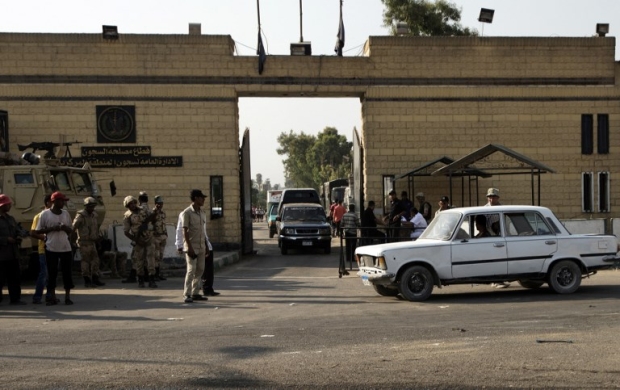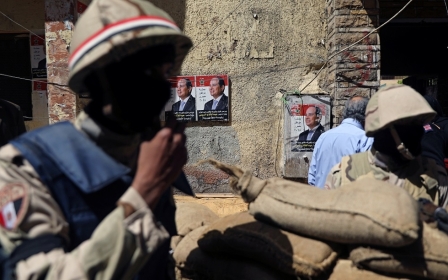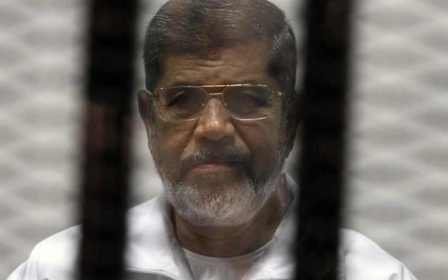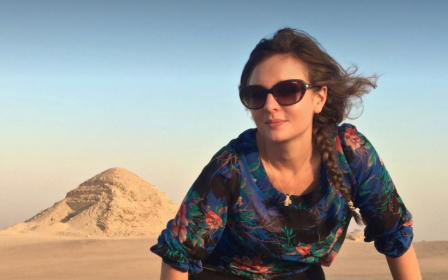Morsi facing early death in inhuman prison conditions, British MPs say
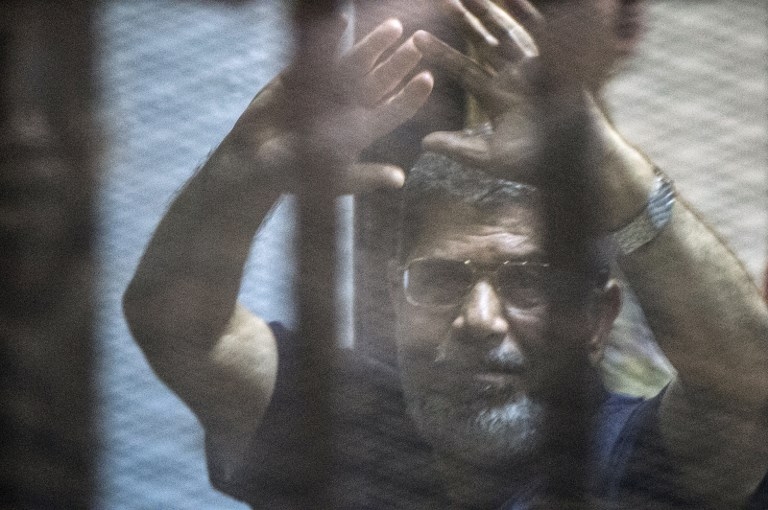
Mohamed Morsi is held in solitary confinement for 23 hours a day, sleeps on a cement floor, and has been permitted to see his family once in the past three years, a panel of British parliamentarians and international lawyers has found.
The former Egyptian president may die prematurely as a result of inadequate medical treatment, and Egyptian President Abdel Fattah al-Sisi could be held liable for his treatment under international law, according to the panel.
'If the Egyptian authorities want to avoid the undoubted difficulties of him dying in custody . . . then it’s an opportunity for them'
- UK MP Crispin Blunt
"We find that the conditions of Dr Morsi's detention would be of such continuing interest to the whole chain of command that the current president could, in principle, be responsible for the crime of torture," they said.
The panel, led by MP Crispin Blunt, released its findings on Wednesday after it was commissioned by Morsi's family - through London-based law firm ITN Solicitors - to investigate the conditions in which the 67-year-old is being held.
The panel asked to visit Morsi in Tora Prison and assess his situation first-hand earlier this month, but the Egyptian government has not responded.
New MEE newsletter: Jerusalem Dispatch
Sign up to get the latest insights and analysis on Israel-Palestine, alongside Turkey Unpacked and other MEE newsletters
"We draw an inference that the Egyptian government do not wish for independent oversight of Dr Morsi's detention," the report said.
A former warden at the maximum security prison, nicknamed Scorpion, said in 2012 that the complex had been designed "so that those who go in don't come out again, unless dead".
"We would have rather hoped that the revolution would have addressed that," Blunt said. "I think the evidence is that it hasn't. President Sisi ought to."
With his re-election expected this week, Blunt said it could be a chance, however unlikely, for the president to "heal the divisions in Egypt" through addressing the prison conditions of Morsi and others.
"If the Egyptian authorities want to avoid the undoubted difficulties of him dying in custody, and it would appear a pretty serious case of neglect, then it’s an opportunity for them," he said.
'Cruel, inhuman and degrading'
Based on the testimonies of Morsi's family and others informed of his condition, the panel has called his treatment "cruel, inhuman and degrading" and said it could "meet the threshold for torture in accordance Egyptian and international law".
Without urgent medical assistance, the damage to his health "may be permanent and possibly terminal", according to the report.
"The consequence of this inadequate care is likely to be rapid deterioration of his long‐term conditions, which is likely to lead to premature death."
Morsi is only served canned food, which is sometimes rotten, and is now suffering from deteriorating liver and kidney function potentially as a result of malnutrition, according to the panel.
Morsi is also reported to be suffering from conditions linked to his diabetes and high blood pressure and reports indicate his health has deteriorated since his incarceration.
The doctor in the prison is a general practitioner appointed by the state. My father requires an assessment by a radiologist, blood tests, a physiotherapist and an ophthalmologist
- Abdullah Morsi, son
He has suffered from diabetic coma and is losing vision in his left eye due to a lack of insulin, injuries to the neck and spine as a result of sleeping on a cement floor, abscesses in his jaw and conjunctivitis, reports say.
His son, Abdullah Morsi, told the panel that a doctor examined his father six months ago, but only had a stethoscope and blood pressure monitor. Further examinations and treatments have not been offered.
"The doctor in the prison is a general practitioner appointed by the state," Abdullah Morsi told the panel. "My father requires an assessment by a radiologist, blood tests, a physiotherapist and an ophthalmologist."
His family has expressed fears that this denial of treatment may be purposeful.
Tayyab Ali, a partner at ITN solicitors, said its likely that the report will be sent to the United Nations, the European Union and the African Union to join a growing body of evidence about what is happening at Scorpion Prison.
"At some point, the various criminal acts that have occured in Egypt will need to be address in some sort of forum," Ali said.
The panel, Ali added, have offered to write a second report if the Egyptian government grants them access to Morsi.
The country's first democratically elected president and a member of the now-outlawed Muslim Brotherhood, Morsi has been held in prison since July 2013 coup by the Egyptian military.
Since then, he has been sentenced to death by hanging and a total of 48 years in prison for various charges, including killing protesters, insulting the judiciary and collaborating with Hamas and Hezbollah.
His death sentences have been overturned, but appeals that could reimpose them are pending.
The Egyptian embassy in London has been contacted for comment.
Middle East Eye delivers independent and unrivalled coverage and analysis of the Middle East, North Africa and beyond. To learn more about republishing this content and the associated fees, please fill out this form. More about MEE can be found here.


